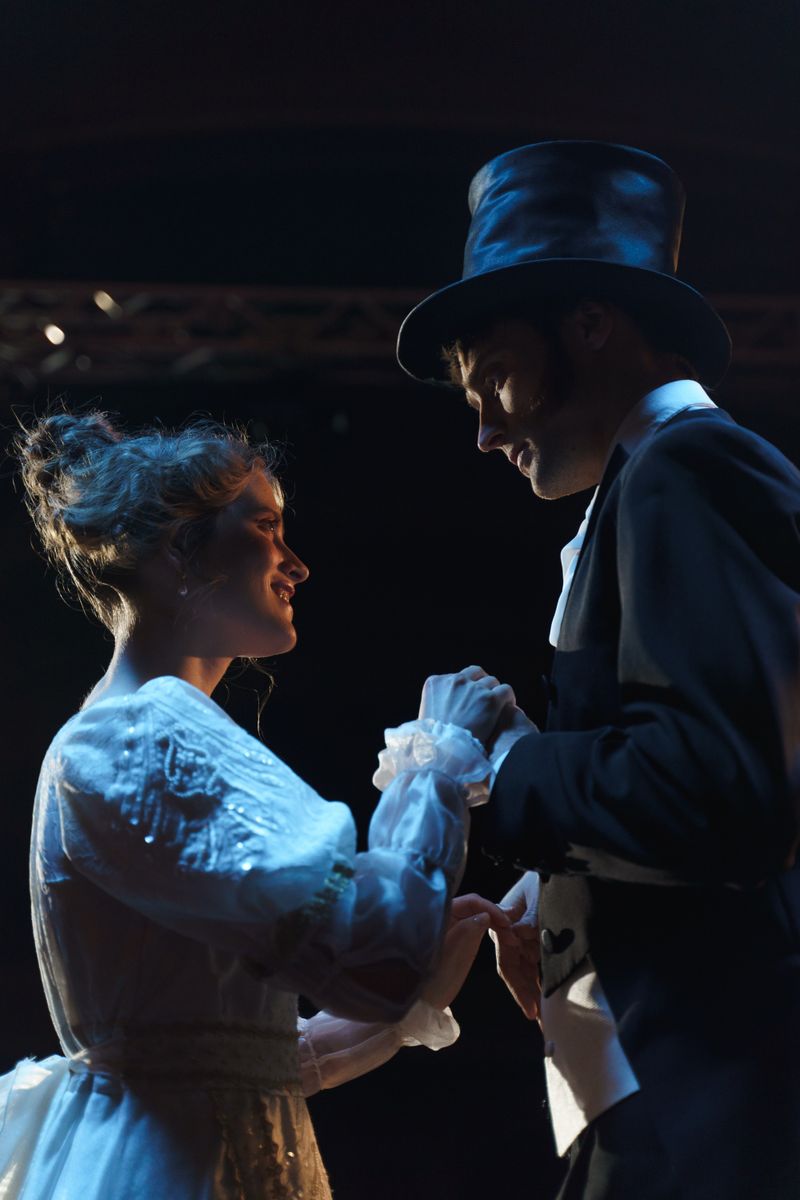Michael Imperioli Clarifies Statement Regarding Supreme Court Ruling on Same-Sex Weddings
A Satirical Take on Blatant Discrimination
Actor Michael Imperioli has issued a follow-up statement on Instagram to clarify his previous remarks in the wake of the U.S. Supreme Court’s ruling that a web designer could refuse to provide services for same-sex weddings. In his initial statement, Imperioli had indicated that he would forbid bigots and homophobes from watching any of his works, thanking the Supreme Court for allowing him to discriminate and exclude those who he disagrees with.
In his recent statement, Imperioli explained that his original post was meant to be satirical and symbolic, highlighting the concerning path that blatantly discriminatory Supreme Court decisions might lead our nation down. He emphasized his belief in religious freedom, freedom of speech, and the right for individuals to pursue happiness. Furthermore, Imperioli expressed his support for the separation of church and state, as enshrined in the First Amendment, and the entitlement of all individuals, regardless of race, religion, color, creed, gender, or sexuality, to freedom, equality, rights, and protection under the laws of the nation. He made it clear that he vehemently opposes hate, prejudice, and bigotry.
Understanding Imperioli’s Intent
It is crucial to interpret Imperioli’s original statement and subsequent clarification within the context of satirical expression. Satire, as a literary and rhetorical tool, seeks to elicit critical thinking and reflection by employing irony, ridicule, and exaggeration. Through his satirical take, Imperioli aimed to draw attention to the potentially divisive consequences of discriminatory Supreme Court rulings. He used irony to underscore the notion that granting individuals the power to exclude others based on personal beliefs undermines the principles of freedom and equality that should guide our society.
By stating that he would not allow bigots and homophobes to engage with his work, Imperioli highlighted the role of media and culture in shaping public opinion. He raised the question of whether it is ethical to provide entertainment to those who perpetuate discriminatory ideologies. This stance aligns with a broader debate in our society about the responsibilities of creators, artists, and entertainers in a world that continues to grapple with issues of inequality, discrimination, and social justice.
The Significance of Imperioli’s Roles
Imperioli is best known for his portrayal of Christopher Moltisanti in the acclaimed television series “The Sopranos,” a role that earned him critical acclaim, including an Emmy award and a Screen Actors Guild (SAG) award. Imperioli’s character, Christopher, was depicted as part of an organized crime family, navigating themes of loyalty, morality, and the complexities of human relationships. “The Sopranos” itself delved into deep sociopolitical commentary, shining a light on the blurred lines between right and wrong, and the consequences of individual actions. The series remains a cultural touchstone, prompting ongoing analysis and debate about its portrayal of Italian-American identity, masculinity, and power dynamics.
In 2022, Imperioli joined the cast of “The White Lotus,” another highly acclaimed HBO series. Imperioli’s role in the show garnered further recognition, with the ensemble cast winning a SAG award for their outstanding performance in a drama series. Through his participation in these culturally significant projects, Imperioli has proven himself as an actor capable of tackling complex and thought-provoking narratives.
The Importance of Context and Discourse
Imperioli’s remarks, initially misinterpreted by some, underscore the importance of context and nuanced discourse in the digital age. In an era where social media provides a platform for rapid dissemination of information and opinions, it becomes essential to carefully consider the intent behind statements, the broader context of the issue at hand, and the potential for misinterpretation.
It is also worth noting that Imperioli’s clarification demonstrates his awareness of the impact his words might have had and his willingness to engage in a dialogue to ensure his message is correctly understood. This openness to discourse should be commended, as it reflects a dedication to fostering mutual understanding and empathy in a society that often finds itself divided along ideological lines.
Editorial: The Role of Satire in Social Commentary
The Power of Satire
Satire has long played a vital role in social commentary, as it enables artists, writers, and entertainers to challenge societal norms and question established power structures. Satirical works have often served as a mirror, reflecting back the flaws and hypocrisies present in our societies. By using wit, humor, and irony, satirists provoke contemplation and create space for critical analysis. Through satire, complex issues can be explored, and the collective consciousness can be prodded to reevaluate deeply ingrained beliefs.
However, satire can be a tricky art form to navigate, as the line between humor and offense is a thin one. Satirical works often rely on exaggeration and subversion to make their point, which can lead to misunderstandings or misinterpretations. It is crucial for both creators and consumers of satire to engage in open dialogue, fostering an environment where intentions can be clarified, and meaning can be understood in a nuanced manner.
Using Satire Responsibly
In an increasingly polarized world, satire can be a powerful tool for unity, as it holds up a mirror to the flaws and contradictions that exist across diverse perspectives. However, wielded irresponsibly, satire can deepen divisions and perpetuate stereotypes. Satirists must approach their craft with care, maintaining an awareness of the potential for misinterpretation and ensuring that their messages are rooted in a commitment to justice, equality, and empathy.
As consumers of satire, we bear the responsibility of engaging with these works critically, recognizing the underlying intentions and themes. We should strive to embrace open conversations that enable us to explore the underlying ideas and perspectives, fostering a more nuanced understanding of the issues so thoughtfully presented.
Conclusion
Michael Imperioli’s recent statement and subsequent clarification regarding his original remarks underscore the enduring power of satire as a tool for social commentary. Though satire can be subject to misinterpretation, it serves as a valuable vehicle for raising awareness, fostering dialogue, and challenging societal norms. Imperioli’s words remind us of the importance of context, discourse, and a commitment to understanding as we navigate the complex issues of our time. As a society, we would do well to embrace thoughtful conversations that enable us to bridge divides and work toward a more inclusive and empathetic future.

<< photo by Sufyan >>
The image is for illustrative purposes only and does not depict the actual situation.
You might want to read !
- Michael Imperioli Sets the Record Straight on “Bigots and Homophobes” Sopranos Ban: An Analysis of the Controversy
- Secret Service Investigates Suspected Cocaine Found in White House West Wing: A Closer Look at Security Breaches in the Executive Branch
- White Powder Scandal: Unpacking the Substance Found at the White House
- The Phenomenal Leap: LSU’s Dylan Crews Makes an Unbelievable Catch at the Wall
- Putin Vows to Hold Wagner Mutiny Leaders Accountable for Their Actions
- Was justice served? Assessing the early release of Allison Mack from prison
- Secret Service investigating suspected cocaine found inside White House – Exposure of Security Vulnerabilities or Isolated Incident?
- “A Capitol Fourth 2023: Belinda Carlisle and Boyz II Men Light Up the Stage with Timeless Hits”




